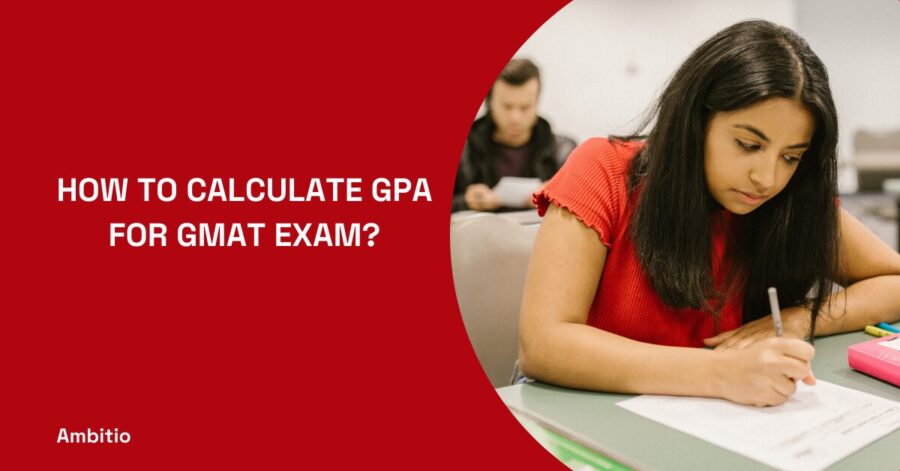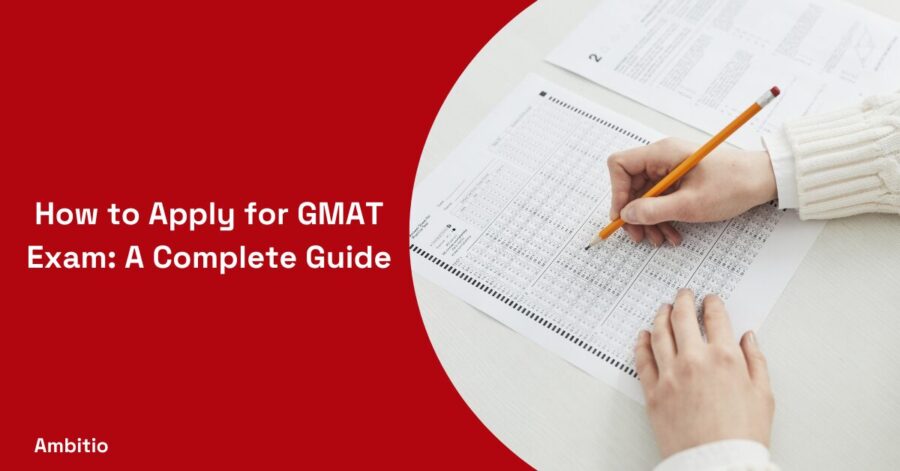23 May 2025
5 minutes read
Best Way to Prepare for GMAT in 2 Months for Indian Students
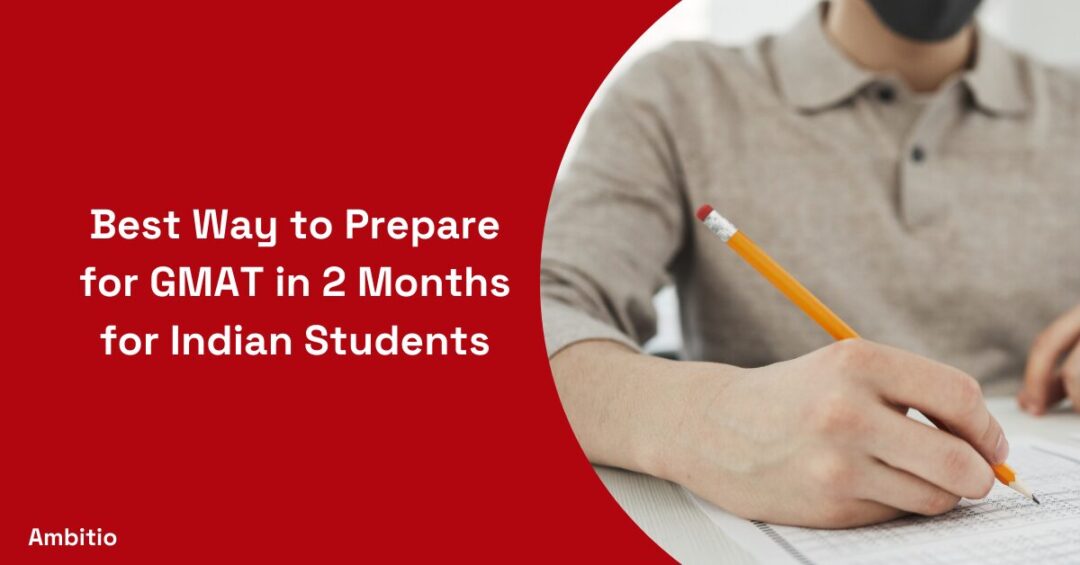
Key Takeaways
- Best way to prepare for GMAT in 2 months is by following a structured study schedule that targets all GMAT sections weekly.
- Best way to prepare for GMAT in 2 months includes taking diagnostic tests, practicing question types, and improving time management.
- Best way to prepare for GMAT in 2 months involves consistent mock tests, detailed review sessions, and using trusted prep books.
Preparing the GMAT within 2 months may seem like a war against time, but Indian students have consistently demonstrated it can be done with the proper plan. The GMAT is a test that tests analytical, verbal, quantitative, and reasoning ability.
Since MBA aspirations lie in the likes of Harvard, INSEAD, or IIMs with international collaborations, it is imperative to adhere to a dedicated 2-month GMAT study plan.
It is important to identify strengths and weaknesses, be efficient in time management, and adhere to an organized study schedule with an emphasis on practice tests and revision.
This article provides a comprehensive guide specifically designed to guide India’s aspirants through the GMAT prep process, utilizing prep books, diagnostic test resources, and GMAT practice tests.
Whatever be the purpose behind taking the GMAT, whether for the first time or for score increases, each student is worthy of a working 60-day preparation plan. Therefore, let’s unravel the optimum method to prepare for the GMAT in 2 months.
How to Prepare for GMAT in 2 Months?
Fun Fact: GMAT doesn’t measure intellect; it tests time management under stress. You don’t have to study 10 hours a day; you need to study smart.
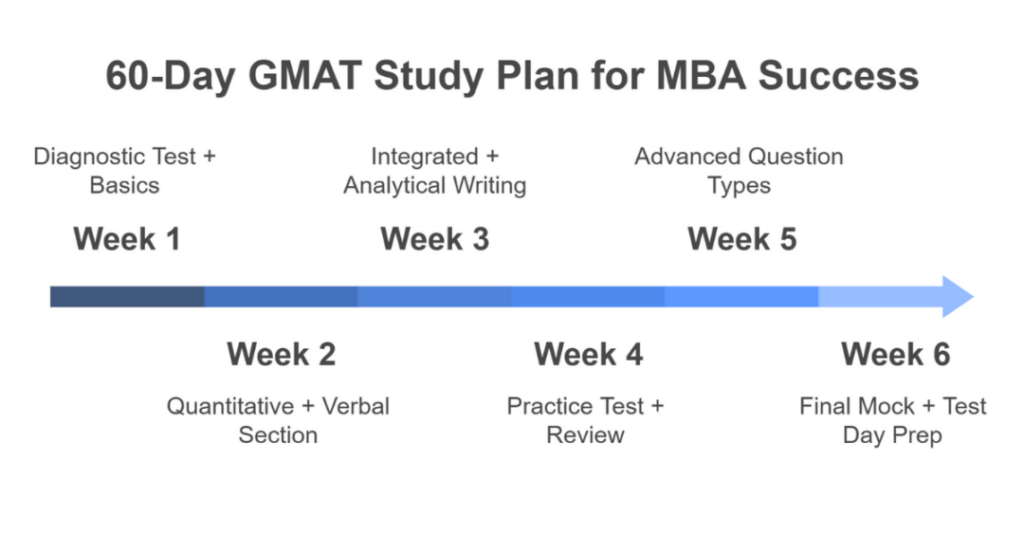
Essential steps to prepare for the GMAT exam in 2 months are:
- Take a diagnostic test: Know your strengths and weaknesses in question types and GMAT sections.
- Set a goal score: Look up the average GMAT score your target schools such as London Business School or University of Toronto in Canada use.
- Create a study routine: Study for GMAT for two to three hours daily with extended study periods at the weekend.
- Practice GMAT question types: Cover verbal reasoning, quantitative reasoning, analytical writing, and integrated reasoning of GMAT.
- Utilize official guide and preparation books: Utilize Kaplan Test Prep, Manhattan Prep, or free GMAT materials.
- Take full-length practice tests: Assess your preparedness for the GMAT and adjust your prep plan.
GMAT Study Plan and GMAT Study Schedule
Fun Fact: The GMAT takes less time than binge-watching two Netflix series. With a proper study plan, you can turn your TV hours into MBA admission letters.
Crafting a 2-month GMAT study plan requires precision. A consistent study time, regular practice questions, and targeted preparation for different GMAT sections are key.
Schools like UCLA Anderson, HEC Paris, or Sauder School of Business expect readiness, not perfection. The plan should include weekly topics, diagnostic test reviews, and section-wise improvements.
Weekly GMAT Study Plan (60 Days):
| Week | Focus Area | Hours/Day | Tasks |
|---|---|---|---|
| 1 | Diagnostic Test + Basics | 2-3 | Take a diagnostic test, study quantitative reasoning basics |
| 2 | Quantitative + Verbal Section | 2-3 | Practice GMAT math, reading comprehension |
| 3 | Integrated + Analytical Writing | 2-3 | Attempt essays, solve reasoning questions |
| 4 | Practice Test + Review | 3 | Full-length practice tests, review test results |
| 5 | Advanced Question Types | 3 | Mixed GMAT questions, build accuracy |
| 6 | Final Mock + Test Day Prep | 2-3 | GMAT mock tests, time management, mental prep |
Are GMAT Practice Tests Useful for GMAT Preparation?
Fun Fact: Students who take at least 4 full-length practice tests score 50+ points higher on average.
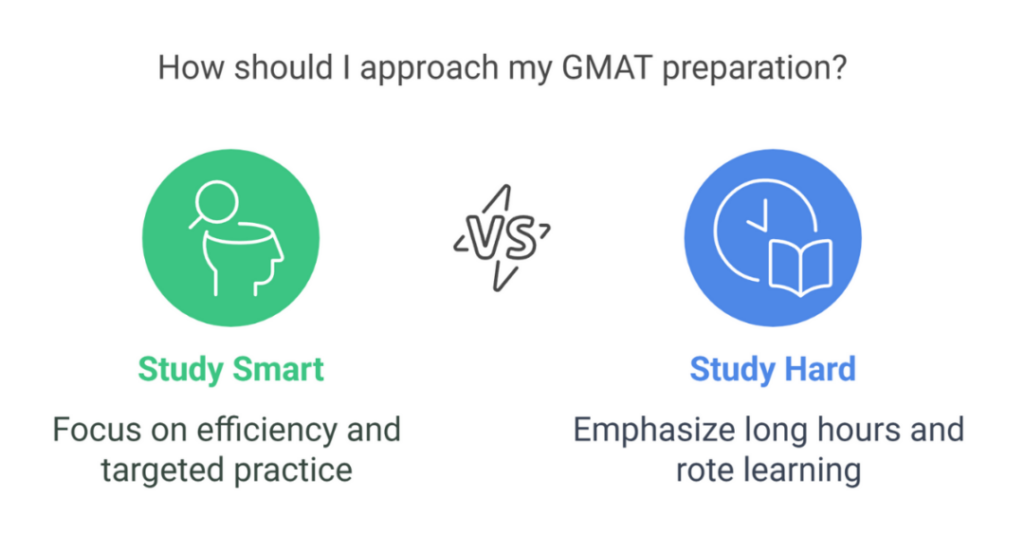
Practice tests are the cornerstone of every GMAT prep plan. They help test-takers track progress, improve time management, and adapt to real exam difficulty levels.
- Track score improvement: Each GMAT practice test shows how close you are to your target score.
- Identify patterns: Understand common errors in analytical writing or verbal reasoning of GMAT.
- Simulate test day: Practice under real-time constraints of GMAT.
- Analyze test results: Review strengths per section.
- Boost confidence: Reduce test anxiety by getting used to the actual GMAT format.
Practice Test Review Table:
| Test Number | Score | Focus Area for Improvement |
| 1 | 550 | Quantitative Reasoning |
| 2 | 590 | Reading Comprehension |
| 3 | 620 | Integrated Reasoning + Timing |
| 4 | 660 | Critical Reasoning + Review Gaps |
Additional Study Guide for GMAT Prep
Fun Fact: Even 10-minute practice questions during your commute can help.
Use a well-rounded guide with a mix of study materials, online tools, and preparation books to maximize GMAT preparation.
- Use an online question bank: Access various difficulty levels for real GMAT simulation.
- Leverage GMAT preparation books: Prefer Kaplan, Manhattan, or Official GMAT Guide.
- Join study forums: Platforms like GMAT Club offer free GMAT resources.
- Track study time: Use apps or planners to measure productivity.
- Include verbal and analytical sessions: Balance all GMAT sections.
GMAT Study Guide Table:
| Resource Type | Example | Purpose |
| Prep Book | Kaplan Test Prep | In-depth topic coverage |
| Online Tool | GMAT Official Guide App | Practice on-the-go |
| Question Bank | Manhattan Online Access | Additional GMAT questions |
| Planner | Custom Study Planner | Track hours per day |
How to Practice Time Management When You Study for the GMAT?
Fun Fact: Time is your real competitor in the GMAT, not the questions.
Time management defines your success in all tests, including GRE, IELTS, SAT and GMAT test day performances. Regular mock tests and timed practice sessions condition your brain to handle pressure.
- Set study session timers: Build endurance for 3-hour sessions.
- Use a countdown during practice questions: Mimic test-day anxiety.
- Practice pacing per GMAT section: 2 mins per quantitative question, 1.5 mins per verbal.
- Take section-wise mock tests: Isolate weaknesses under time stress.
- Review missed questions: Focus on why they took longer.
Time Management Table:
| Task | Recommended Time Allocation |
| Quantitative Reasoning | 62 minutes |
| Verbal Reasoning | 65 minutes |
| Integrated Reasoning | 30 minutes |
| Analytical Writing Assessment | 30 minutes |
Conclusion
To master the GMAT within a span of two months of preparation seems daunting, but with a razor-sharp 2-month study plan, intense study schedule, and regular practice tests, it is completely possible. Begin with a diagnostic test to identify strengths and weaknesses.
Construct your preparation plan based on GMAT question types and define clear goals for each study session. Diversify test preparation with official guide books, prep guides such as Kaplan Test Prep, and online question bank.
Monitor progress with full-length practice tests and review test results to optimize score increase. Most importantly, master time management to achieve full efficiency on test day. Whether you shoot for a mean GMAT score or set sights on a top MBA school, preparation is your greatest friend.
Stick to your study schedule, honor your study time, and believe in the process. Within 60 days, you can make GMAT prep your ticket to leading B-schools to study in USA, UK, or Canada.
So go ahead and take the GMAT with confidence with the expert assistance at Ambitio, and own your destiny.
FAQs
What is the best way to prepare for GMAT in 2 months with a full-time job?
The best way to prepare for GMAT in 2 months with a full-time job is to create a realistic study schedule that includes 2-3 hours of focused study time daily and strategic weekend mock tests.
Is the best way to prepare for GMAT in 2 months effective for first-time test takers?
Yes, the best way to prepare for GMAT in 2 months is effective even for first-timers when combined with diagnostic tests, guided practice, and targeted review of weaker areas.
Can I follow the best way to prepare for GMAT in 2 months using only free resources?
The best way to prepare for GMAT in 2 months using free resources includes official GMAT guides, online question banks, and timed practice tests available on trusted platforms.
How does the best way to prepare for GMAT in 2 months differ from a 6-month plan?
The best way to prepare for GMAT in 2 months is more intensive and structured, requiring daily commitment, while a 6-month plan offers more flexibility and pacing.
Does the best way to prepare for GMAT in 2 months guarantee a high score?
While the best way to prepare for GMAT in 2 months improves performance, a high score depends on consistent practice, time management, and personal strengths.
What tools support the best way to prepare for GMAT in 2 months?
Tools supporting the best way to prepare for GMAT in 2 months include Kaplan prep books, GMAT official guides, custom planners, and online practice test platforms.
Who should follow the best way to prepare for GMAT in 2 months strategy?
Anyone with limited prep time aiming for competitive MBA admissions should follow the best way to prepare for GMAT in 2 months to efficiently improve their GMAT score.

You can study at top universities worldwide!
Get expert tips and tricks to get into top universities with a free expert session.
Book Your Free 30-Minute Session Now! Book a call now















